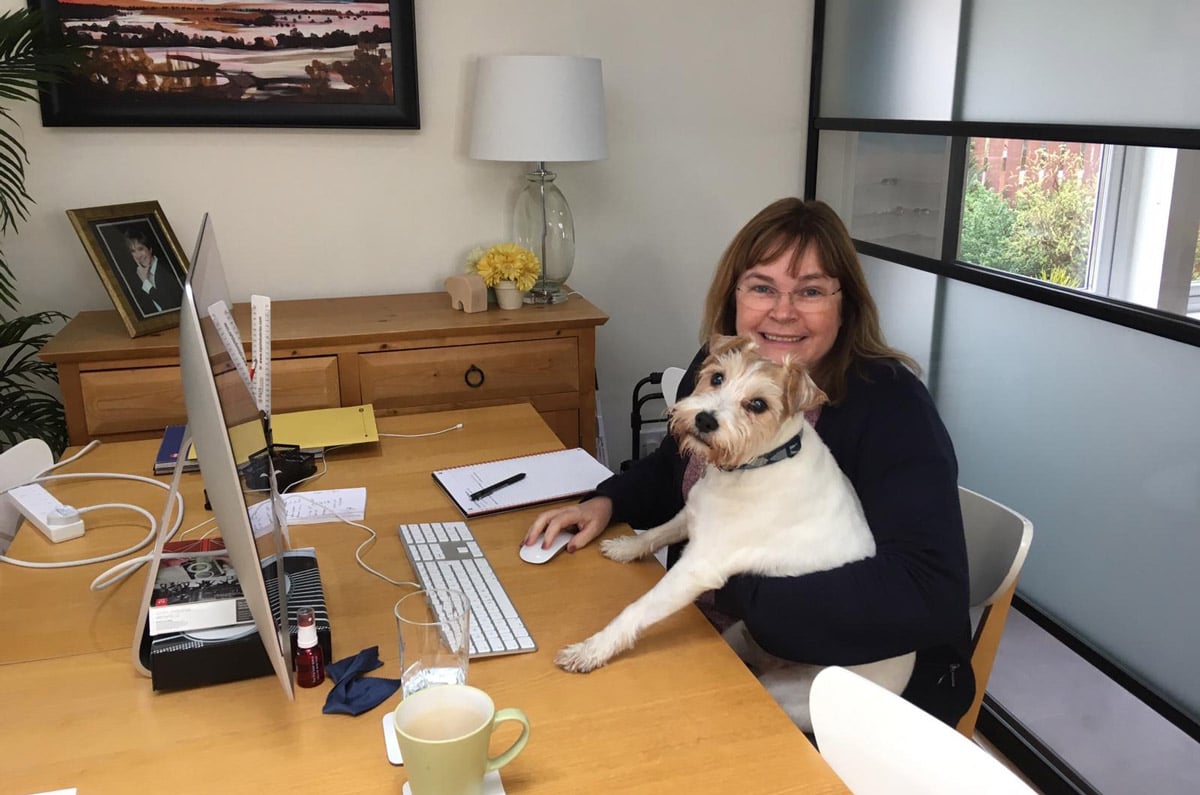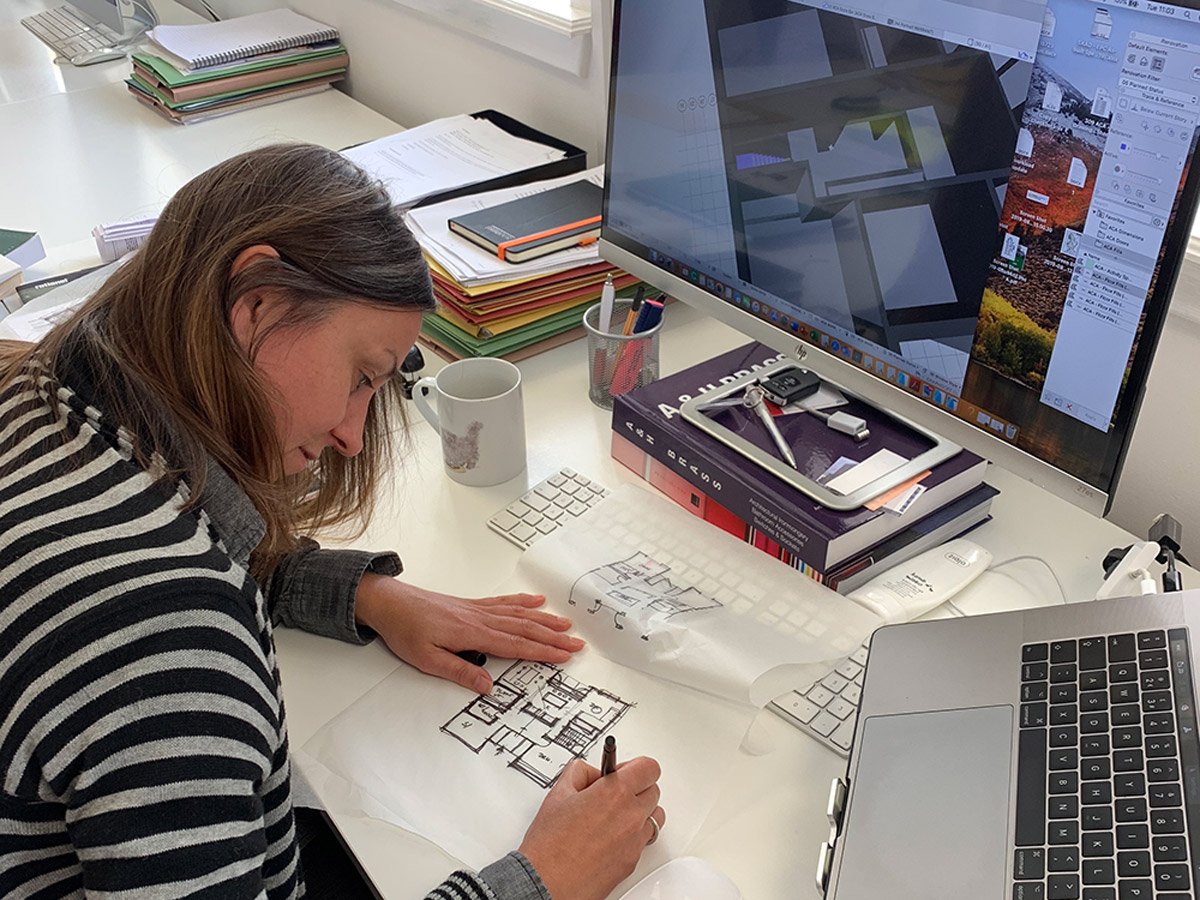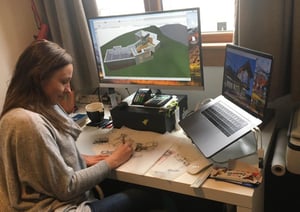The COVID-19 pandemic was a strange time for us all, with lockdown and social distancing changing most of our daily habits. For many people, it was their first time working from home, ever! Our team started working remotely in March 2020, and it's now part of our weekly routine.
To help others optimise their work-from-home experience, we prepared this article with top tips and first-hand advice from our team members. It aims to provide you with advice on how to work effectively and maintain your mental well-being.

IMITATE YOUR DAILY OFFICE ROUTINE
One of the biggest challenges when it comes to working from home is keeping your work and home lives separate. This is because your work and home are no longer physically separated by a change in environment and physical space. Commuting to work not only takes you to the office, but it also prepares your brain for work.
Therefore, it may be challenging to get into the ‘work mode’ in the morning and disconnect from it afterwards. This can then result in working longer hours and reduced productivity, leading to increased frustration.
A technique to deal with this is introducing rituals that will trigger your brain into the ‘work mode’. This can be done by developing a similar working routine to your routine when you work in the office. If you usually listen to the radio when commuting to work, you can listen to it to prepare your brain for a workday.
You can also imitate commuting to work by going for a quick walk. The routines that will help you while working from home are clearly set working and lunchtime hours. Some people find it useful to get dressed as if you would work from an office.
"I start my day with a 10-minute yoga sun salutation. It helps me unwind my mind and body and focus on the day ahead. I surround my desk with green plants, and from time to time, I pop into my garden for three rounds of breathing fresh air"
- Iga Panczyna, Senior Chartered Architect

DESIGNATE YOUR WORKING SPACE
Another technique to turn the ‘work mode’ on is to create a space within your home that you use for work only. If you can, change one room into a home office and arrange it in a way so that you are inspired and have everything you need within the room.
Choose a room that gets as much natural light as possible. If you don’t have a full room to use as your home office, you can arrange a corner of your living room and try to separate it from the rest of your home as much as it is possible.
Designating your working space is crucial for establishing boundaries and helping you separate your work from home life.
CREATE A CLEAR LIST OF TASKS
At the end of your working day, spend 5-10 minutes on planning what tasks you will work on the next day. Preparing a checklist will help focus your mind and allow you to begin working quickly. It also gives you clarity and allows your mind to rest after a day of work.
Use Parkinson’s law. According to this theory ‘work expands so as to fill the time available for its completion’ which means that if you plan to spend 4 hours to complete a particular task, you will work in a way to finish it just in the time, even if it would be possible to do it quicker. Keeping this in mind, try to set realistic time limits for each task to keep you focused and working effectively.
"My main tip is to get showered and dressed before starting work – helps wake you up! I take a longer lunch break (make the time up at the end of the day – honest!) and do something completely different like walking the dog, knitting etc. – anything that’s not screen & reading-related".
- Joanne Mayland, Technologist
COMMUNICATE WITH YOUR COLLEAGUES
One of the most significant benefits of the office environment is the possibility of discussing issues and ideas with your colleagues. This not only helps you find solutions and solve problems, but it also helps with motivation.
You shouldn’t resign from contacting your workmates just because you work remotely, especially since technology makes it so easy to stay in touch. Don’t hesitate to contact the same people you would usually ask when you are in the office with them.
Calling your work colleague when you need some inspiration and motivation or attending a group Zoom call with your team will help you increase productivity and find solutions to the problem you are stuck with.
ACA team has a WhatsApp group where we stay in touch and discuss many work and non-work-related subjects. We also organise regular group catch-ups on Zoom.
"I workout first thing in the morning and have a nice breakfast rather than grabbing something on the go. I also set smaller tasks to achieve before lunch and then again in the afternoon. It breaks your day up. I stick to a routine because once that’s gone, it’s hard to get back to reality. I also meditate at the end of the day. It’s like hoovering for the brain!"
- David Macfarlane, Senior Technician

LIMIT DISTRACTION
This is an important point to address as there will be many temptations to distract you at home. Try to create a set of rules for your working time, such as no TV, phone or social media between 9 am – 5 pm, except for lunchtime.
At home, there will always be a job to be done or a chore to be completed. This is why it is important to create a workstation, to avoid the temptation of washing up that one plate or mug which then leads to the next task.
Currently, one of the biggest distractions is the news. Reading COVID-19 updates may not only distract you but also fill in with anxiety. Try to limit the amount of news you watch to one a day.
Many people are at home with partners, pets and children. This is also very challenging. It is crucial to support each other in sharing responsibilities, so each of you has enough uninterrupted time for work.
"I recently bought an adjustable desk to practice my DJ skills and protect my back. In the current circumstances, my DJ booth has transformed into my office now, and I really enjoy working at my standing desk. It helps my back, and switching my working position also helps me maintain focus".
- Przemek Bryniak, Marketing
LOOK AFTER YOUR MENTAL HEALTH
Although productivity is important, remember that you also need time to adapt to the current situation. We are living in a stressful time full of uncertainty, and you have the right to be worried and give yourself some time to develop a routine that will give you similar productivity like in the office.
You also need to remember that your mental health is equally as important as your job and you should try to unwind and relax after a busy day.
Exercise, meditation, listening to music or doing something you enjoy will help you maintain a clear head. Just because you are not able to meet with friends in person does not mean you can’t stay connected. Use technology such as Zoom to arrange virtual catch-ups with friends and family. It is essential to stay connected and take care of one another during this challenging time, even if you can’t do it in person.



